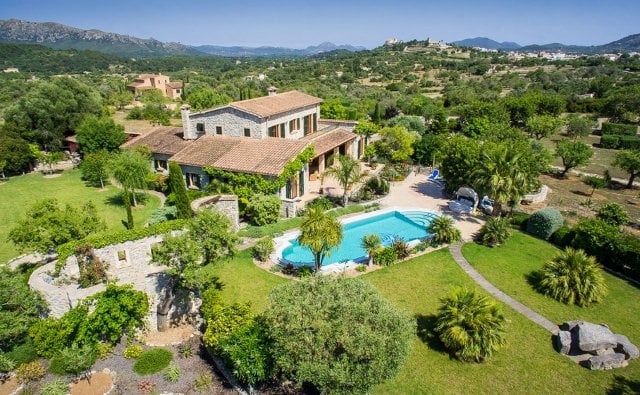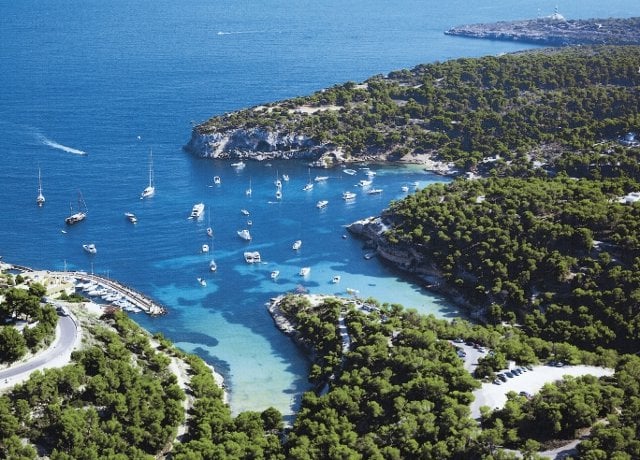The turbulent markets around the world today have stifled much investment potential, further exacerbating recovery stimulus. With interest rates at an all time low, enticing high net worth investors is now a game only the astute can afford to excel at. Yield, this has become the Holy Grail for funds and individual players. Here's a look at one market, Spain, where the big money plays safe in real estate.
If you're familiar with Robert Shiller (above), the American Nobel Laureate, economist, academic, and best-selling author, then perhaps you've seen his latest take on US Stocks and his advise to move to Europe with investments in the Italy and Spain indexes. Shiller just told CNBC: "I'm thinking of getting out of the United States somewhat. Europe is so much cheaper." Along these lines Shiller is not alone by a long shot, and his recent warnings of a possible bond collapse in the US bear intense scrutiny as well. On the Europe end of things, from Frankfurt and Berlin to Beijing and Moscow were seeing the potential of Spain in particular emerge as a real value for all investors. Low interest rates in Europe have literally forced big money investors to consider yields even in the 3-4% range. Property in Spain, especially key markets like Mallorca, they afford a stable win. This MoneyWeb report on property funds bears up in part Shiller's positive case.

New Europe Property Investments plc (NEP) Shows a +53.1 change yoy and a dramatic increase the last 3 months
As for the Nobel investment guru, he's even launched a fund specifically for people to take advantage of European investments of a sort. The Ossiam Shiller Barclays Cape Europe Sector Value, an exchange traded fund that helps investors pick the right moves at the right time. Shiller's/Barclays' methods use myriad factors to weigh cheaper/value markets for the safest/best bets. Currently in Europe, Spain and Italy are joined by Greece, Russia, Portugal and Hungary as markets to watch owing to their cheap buy in ratios.

A Finca on Mallorca Magar is offering via his Mallorca Finca company - a €2.25 million euro property like this even used as a vacation rental can yield 4% ROI according to the Capital Value CEO. Added tax and other benefits attract German buyers
This report speaks of Shiller's recent Italy win, but also reflects his confidence in Russia and other "wonderful markets" as he calls them. Interesting where Russia is concerned, with the EU position on Crimea in mind, knowledge will end up being profit for some if/when relations normalize. One instance, EU sanctions on various industries in Crimea, these documents bear inspection for opportunities. This PDF from the commission outlines the various industries affected now. The point being, Crimea property will eventually be a hot item given the devaluation of currencies etc.
But all this focus is on funds and buying into the macro market, what's interesting for German and Swiss investors are the long term gambles property and developments entail. As I said, a yield of 4% from renting a luxury property in Palma (for instance) entices many form Geneva and Frankfurt. The added benefit of having property at Spain's vacation wonderland is that flights to Palma from Luxembourg or Zurich even, are shorter than an Atlanta commute. I spoke yesterday about just such investments with veteran investment analyst and CEO of Luxembourg's Capital Value S.A., Johannes Magar, who's heavily vested in Mallorca, Dubai, and various Europe markets. Magar had this to say about the attractiveness of Mallorca for Europeans:
"Germans in particular have a lot of confidence in Spain right now. This is due to the governments positive bond indications, as well as Spain's historic success real estate wise. Prices have bottomed out, just as the negative economy seems to have. Added value for high net worth individuals also exists because of Mallorca's accessibility from Europe capitals."

Land plots at Sol de Mallorca and other Balaeric regions are in steep demand - Courtesy Balaeric Properties
Magar went on to mirror another of Shiller's anecdotes in that "savings" are really earnings in the new market dynamic. The Capital Value executive pointed to Cyprus home prices being down as much as 5% just in the last few months. The bottom line there is, if recent Russian interests boosts that market, 5% saved in investing in the housing or rental market will equal 5% yield in the short term for investors. This same sentiment plays out all over the formerly depressed Europe market.
Of course Spain is no "commute" for the New York or Miami hedge player, but the value and potential is obviously there. $10 million buys more in a cheaper market, and the win is bigger too, if the market takes off. The combination of relative stability, historic value, and market indicators like demand for regions like Mallorca, these all must have played into Shiller's minute assessments. From what we can tell from Europe, Shiller really does have his fingers on the pulse here. This report from EcoMonitor this week tells of Spain's "positive deflation" - an apparent resurgence telling of booming domestic recovery, or as Bloomberg's Maria Tadeo put it recently; “Madrid is ready to party again”.
A capped out US market with the potential for a bubble burst any time, dynamic European money flows into Spain, Italy, and even Greece, and a spectrum of other positive factors just may be showing us all Shiller does indeed have some kind of crystal ball. Should the safe money follow Shiller? Every indication says yes.